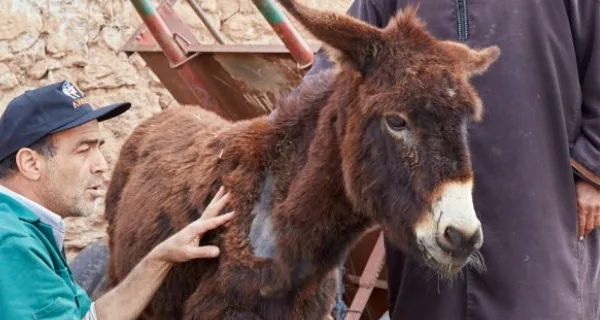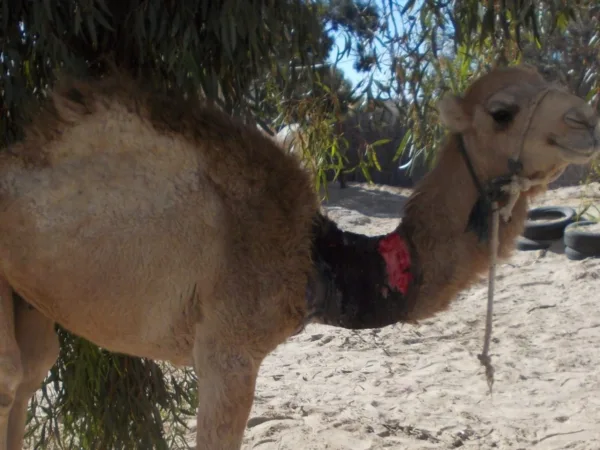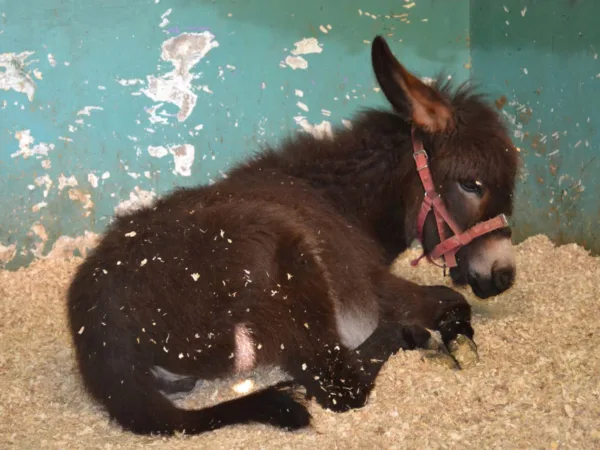Educating empathy on the eastern cape, South Africa
The Eastern Cape is one of the most economically depressed areas of South Africa.
In communities where people make a meagre living with their donkeys, animal welfare is often overlooked. But thanks to SPANA-supported Farm Animal Centre for Education (FACE), children’s attitudes in South Africa are quickly changing.
In the Xhosa communities of South Africa, young boys are traditionally expected to take care of livestock and working animals but have never been taught about animal welfare. In fact, as many as 90 per cent of children felt that donkeys were ‘useless and stubborn’, ‘must be whipped hard to make them move’ and are ‘ugly and stupid’. As a result of these attitudes, cases of neglect or abuse are sadly all too common here.
FACE’s programme focuses on changing children’s attitudes to working animals, encouraging them to become more sympathetic to animal suffering and take better care of their own donkeys. Children learn that whipping a donkey until it collapses is wrong and are taught how to move their donkey forwards using sounds and arm movements as opposed to physical violence.
Dumsani Mazinyo, now 17, has been driving donkeys since he was nine years old:
‘When we started working with donkeys, we were harsh with them and beat our donkeys. We put wires in their mouth and we didn’t care they were in pain.’
But with FACE intervention, Dumsani has completely changed his attitude and won the trust of his animal:
‘We treat them as we treat ourselves. I can stand close to and touch my donkey now without it trying to run away and kick me.’
As this relationship between human and animal is strengthened, the future of this community’s donkeys is infinitely brighter.
Although Dumsani’s sister Ovaya had grown up around these animals, she had never actually touched a donkey until FACE educated her. Dumsani guided her to stroke the family’s donkey and Ovaya was delighted by how soft and gentle the animal was. Now she is a strong advocate for animal welfare and spreads the message of animal welfare to her peers.
Her teacher, Peter Ngabase said:
‘The children didn’t know anything about caring for animals and neither did I. We really need this training in our village.’
Peter was trained as a FACE Working Donkey Champion in 2015 and has since worked across the region delivering working animal welfare classes to both children and adult animal owners. When he sees a working animal in need of help he educates the owner, providing information about the donkey’s needs and ability to feel emotion and pain. Peter reinforces concepts of “good practice” frequently, which are slowly becoming the norm rather than the exception.
SPANA and FACE will continue to work together to educate and improve the treatment of working animals. So far over 250 children and 100 young donkey handlers have been reached through the project. Thanks to this incredible programme, working donkeys across South Africa can look forward to a future of better care and greater respect.



